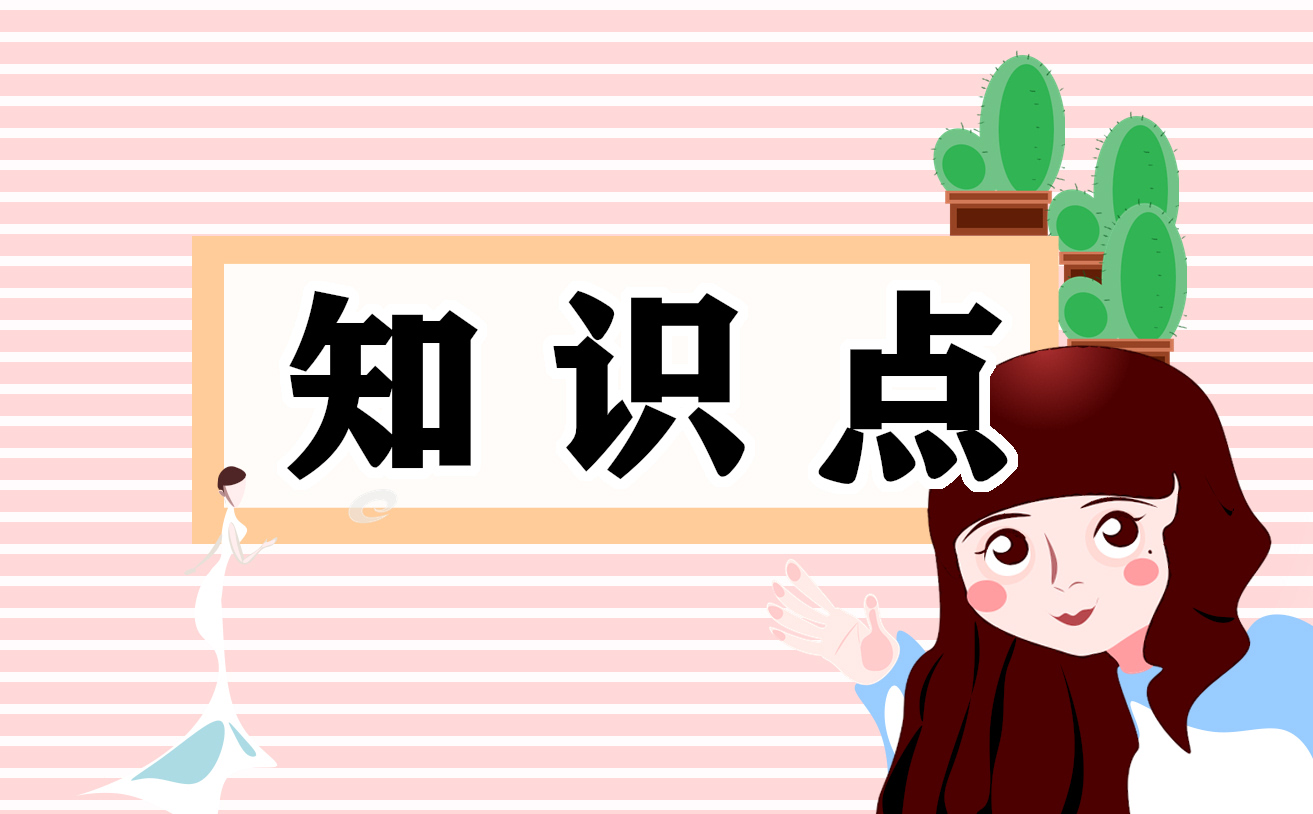漫长的学习生涯中,看到知识点,都是先收藏再说吧!知识点在教育实践中,是指对某一个知识的泛称。为了帮助大家更高效的学习,下面小编为大家带来初二英语必考知识点一览2022,希望大家喜欢!

初二英语必考知识点
1. on the street / in the street
表示“在街上”时,on the street 和 in the street 都可以,在美国多用on the street, 在英国多用in the street. 例如:We have a house in the street. 我们在街上有座房子。I met him on the street. 我在街上遇见了他。
2. would like / like
would like 和 like含义不同。like 意思是“喜欢”,“爱好”,而 would like 意思是“想要”。试比较: I like beer.=I’m fond of beer. 我喜欢喝啤酒。I’d like a glass of beer= I want a glass of beer. 我想要一杯啤酒。Do you like going to the cinema? 你喜欢看电影吗?Would you like to go to the cinema tonight? 你今晚想去看电影吗?
3. another / the other
(1)another 通常用于三个或三个以上或不确定数量中的任意一个人或 物体。 例如:
May I have another apple, please? 请在给我一个苹果好吗?
This coat is too small for me. Please show me another这件外套我穿太小,请再给我拿一件看看。
(2)the other 通常指两者中的另一个。例如:
He has two rulers. One is short. The other is long. 他有两把尺子,一把短的,另一把长的。
I have two brothers. One works in Xi’an . The other works in Beijing. 我有两个兄弟,一个在西安工作,另一个在北京工作。
4. have to /must
(1)have to和 must 都可以用来谈论义务,但用法略有不同。如果某人主观上觉得必须去做而又想去时,常用must。如果谈论某种来自“外界”的义务,常用have to。
例如:
I must stop smoking. 我必须戒烟。(自己想戒烟)
They have to work for the boss.他们不得不为那个老板工作。(条件逼得他们去工作)
(2)have to 可用于多种时态,must 只能用于一般现在时。例如:
I’ll have to get up early tomorrow morning.明天早晨我必须早早起床。
We had to work long hours every day in order to get more money.为了多挣钱,我们不得不每天长时间地工作。
(3)用于否定句时,mustn’t意思是“决不能”,“禁止”,而don’t have to意思是“不必”,相当于needn’t。
例如:
You mustn’t be late again next time.下一次你决不能再迟到。
You don’t have to go there today. You can go there tomorrow.你今天不必到那里去了。你可以明天去。
5. hear sb. or sth.doing sth. / herar sb. or sth. do sth.
hear sb. or sth.doing sth.意思是“听到某人或某物在做某事”,而hear sb. or sth. do sth.意思“听到某人或某物做过某事”。
试比较:
I hear him singing an English song.听见他在唱英歌曲。
I heard him sing an English song.我听见他唱一首英文歌。
类似hear 这种用法的还有see, watch, listen, feel等感官动词。
6. any /some
any和some 都可以同不可数名词和可数名词的复数形式连用,但some一般用在肯定句中;any用在疑问句和否定句中。
试比较:
I want some money. 我想要点钱。
Have you any money? 你有钱吗?
I don’t have any money. 我一点钱也没有。
some 有时也用于疑问句,表示说话人期待一个肯定回答或鼓励人家说“是”。例如:
Would you like some more beer?请你再来点啤酒好吗?
Could I have some rice, please?请给我来点米饭好吗?
7. hear /listen to
listen to 和hear 都有“听”的意思,但含义有所不同。Listen to强调“听”的动作,hear 强调“听”的结果。
例如:
Listen to me ,please! I’m going to tell you a story. 请听我说!我给你们讲个故事。
Listen! Can you hear someone crying in the next room? 听!你能听见有人在隔壁房间里哭吗?
I listened, but heard nothing.我听了听,但什么也听不见。
hear 后面如果接宾语从句,常常表示“听说”。例如:
I hear some foreign students will visit our school.我听说一些外国学生将要访问我们学校。
I hear there is going to be a film in our school this evening.我听说今晚我们学校要演一场电影。
8. Let’s… /Let us…
Let’s… 和Let us… 都表示“让我们……”, 如果us 包括听话人在内,其含义相同,附带问句用shall we. 如果us 不包括听话人在内,其含义不同,Let us…的附带问句要用will you。
例如:Let’s go shopping, shall we? 我们去购物好吗?
9. take/ bring/ carry /get
这四个动词都有“拿”和“带”的意思,但含义有所不同。take意为“带走”,“拿走”,bring意为“带来”,“拿来”, get表示“到别的地方把某人或某物带来或拿来”,carry不强调方向,带有负重的意思。试比较: